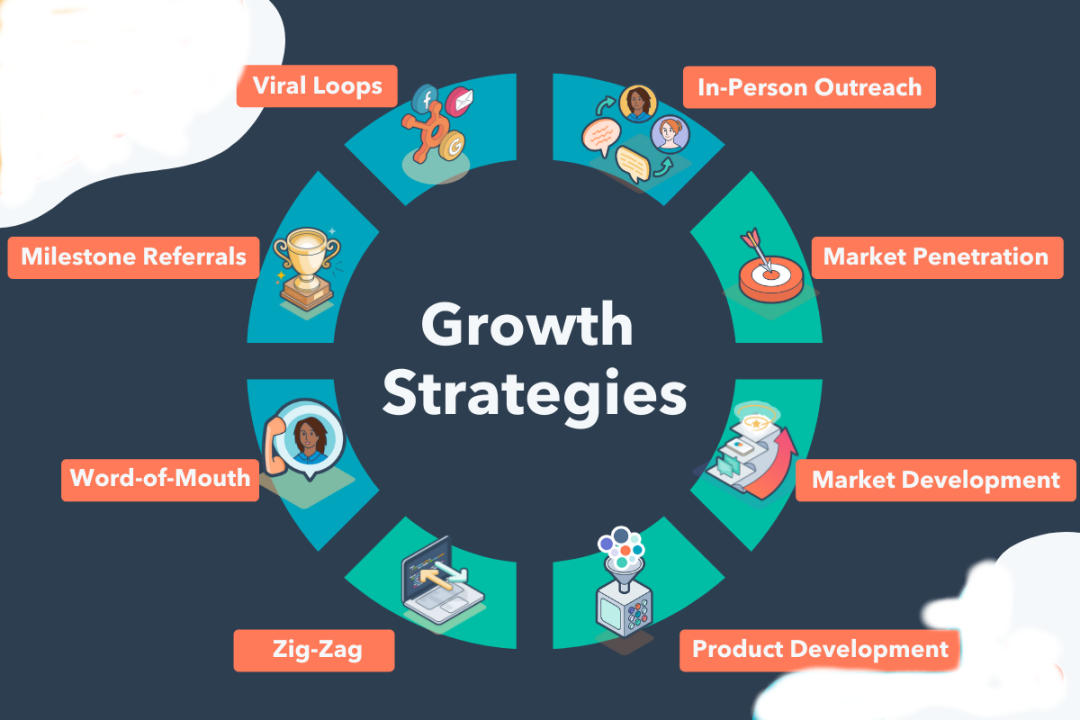Business
Strategizing Success: The Vital Role of a Business Growth Strategist

In the dynamic and competitive world of business, the pursuit of sustainable growth is a common goal for organizations of all sizes. Achieving this growth requires more than just a desire for expansion; it demands a well-crafted strategy that encompasses market dynamics, organizational strengths, and innovative approaches. This is where the role of a Business Growth Strategist becomes indispensable. In this article, we will explore the pivotal role played by a Business Growth Strategist in steering organizations toward success and sustained prosperity.
Key Responsibilities:
Thorough Analysis:
One of the initial responsibilities of a Growth Strategist is to conduct a thorough analysis of the business environment. This involves assessing market conditions, industry trends, and the competitive landscape. By understanding the external factors influencing the business, the strategist can identify growth opportunities and potential threats.
SWOT Analysis:
A Business Growth Strategist often employs a SWOT analysis (Strengths, Weaknesses, Opportunities, Threats) to evaluate both internal and external factors affecting the organization. This strategic assessment serves as the foundation for developing growth plans that leverage strengths, address weaknesses, capitalize on opportunities, and mitigate threats.
Market Positioning:
Crafting a compelling value proposition and strategically positioning the organization within the market are key responsibilities. A Growth Strategist works to differentiate the business from competitors and enhance its appeal to target audiences. Effective market positioning is crucial for building a strong and recognizable brand.
Risk Management:
Acknowledging and mitigating risks is an integral part of growth strategy. A Growth Strategist assesses potential challenges and develops contingency plans to ensure that the organization can adapt to unforeseen circumstances. Managing risks effectively contributes to the resilience of the growth plan.
Diversification and Innovation:
Sustainable growth often involves exploring new avenues for diversification and innovation. A Business Growth Strategist identifies opportunities for introducing new products or services, entering untapped markets, and embracing emerging technologies. This forward-thinking approach ensures that the organization remains adaptable and competitive.
Collaboration and Communication:
Effective collaboration and communication are paramount for successful growth initiatives. A Growth Strategist works closely with various departments within the organization, fostering a culture of collaboration to ensure that growth objectives align with the overall business strategy. Clear communication is crucial for gaining buy-in from all stakeholders.
Monitoring and Evaluation:
Implementing a growth strategy is an ongoing process. A Business Growth Strategist monitors key performance indicators (KPIs) and regularly evaluates the success of growth initiatives. This iterative approach allows for adjustments and refinements as needed, ensuring that the organization stays on course toward its growth objectives.
Skills and Attributes of a Successful Business Growth Strategist:
Analytical Acumen:
A Growth Strategist must possess strong analytical skills to interpret market data, identify trends, and derive actionable insights. Analytical acumen allows for informed decision-making and strategic planning.
Strategic Vision:
A forward-thinking perspective is essential for a Growth Strategist. The ability to envision the future landscape of the business and industry enables the development of long-term growth plans aligned with the organization’s vision.
Adaptability:
In the dynamic business environment, adaptability is crucial. A Growth Strategist must navigate change with resilience, adjusting strategies in response to shifting market conditions and organizational needs.
Communication Skills:
Effective communication is at the heart of successful growth initiatives. A Growth Strategist must articulate complex strategies in a clear and compelling manner, ensuring alignment across the organization.
Leadership Abilities:
Leadership qualities are essential for influencing and inspiring teams. A Growth Strategist motivates cross-functional teams, fostering a shared commitment to the organization’s growth objectives.
Negotiation Skills:
Collaborating with stakeholders, negotiating partnerships, and securing resources are common aspects of growth strategy implementation. A skilled negotiator can leverage opportunities for the organization’s benefit.
Technological Fluency:
Embracing technology is integral to modern growth strategies. A Growth Strategist stays abreast of technological advancements, leveraging tools and platforms to enhance organizational efficiency and effectiveness.
Financial Literacy:
Understanding financial principles and managing budgets is a critical aspect of growth planning. A Growth Strategist ensures that growth initiatives are financially viable and contribute to the overall fiscal health of the organization.
Case Studies in Business Growth Strategy:
Amazon:
Amazon’s relentless focus on customer-centric strategies and continuous diversification into new markets exemplifies effective growth strategy. The company’s expansion from an online bookstore to a global e-commerce giant and cloud computing powerhouse reflects strategic vision and adaptability.
Apple:
Apple’s success is intricately tied to its innovative product launches and ecosystem integration. By consistently introducing groundbreaking devices and services, Apple has maintained a strong market position and customer loyalty.
Tesla:
Tesla’s disruptive entry into the automotive industry, coupled with its commitment to sustainable technology, showcases the impact of a growth strategy centered on innovation. The company’s success in the electric vehicle market is a testament to strategic vision and market positioning.
Netflix:
Netflix revolutionized the entertainment industry by transitioning from a DVD rental service to a global streaming platform. Through strategic content creation, international expansion, and technological innovation, Netflix has become a dominant force in the media landscape.
The Collaborative Role of Business Growth Strategists and Marketing:
A cohesive strategy integrates marketing efforts to enhance brand visibility, attract customers, and drive revenue. Marketing campaigns aligned with growth objectives contribute to the overall success of the organization’s expansion plans.
The Future of Business Growth Strategy:
As technology continues to advance and global markets evolve, the role of a Business Growth Strategist remains pivotal. The future of growth strategy will likely involve increased reliance on data analytics, artificial intelligence, and sustainable business practices. Embracing innovation, staying agile, and fostering a culture of continuous improvement will be key components of successful growth strategies in the years to come.
Conclusion:
A Business Growth Strategist serves as a catalyst for organizational evolution, driving initiatives that propel businesses toward success and sustained prosperity. By combining analytical prowess, strategic vision, and effective collaboration, these professionals navigate the complexities of the business landscape, turning challenges into opportunities. As organizations strive for growth in an ever-changing world, the strategic guidance provided by a skilled Growth Strategist becomes not only a valuable asset but a cornerstone for enduring success. In unleashing the potential for growth, these professionals contribute to the resilience, adaptability, and innovation that define the businesses of tomorrow.

-

 US News2 months ago
US News2 months agoThe Evolution and Impact of SimCity Forums on the Gaming Community
-

 Fashion2 months ago
Fashion2 months agoCelebrity Style Spotlight: Iconic Slip Dress Moments of 2024
-

 Fashion4 months ago
Fashion4 months agoMercedes Blanche: A Guide to Her Impact on the Boys
-

 Business5 months ago
Business5 months agoUnderstanding Cloudiness in Urine: Causes, Symptoms, and Treatment















